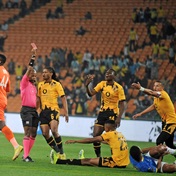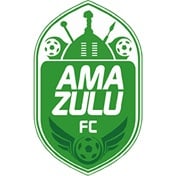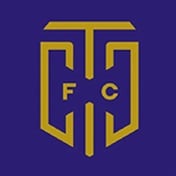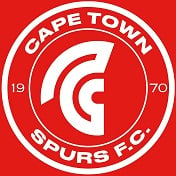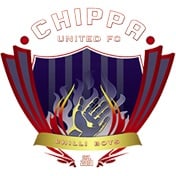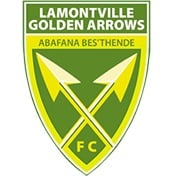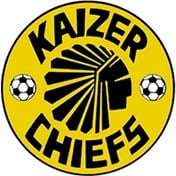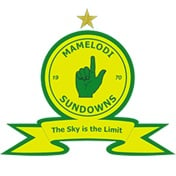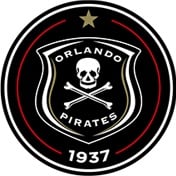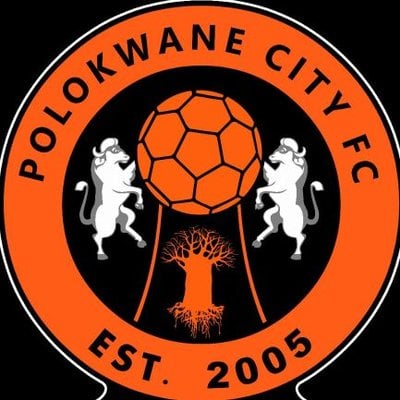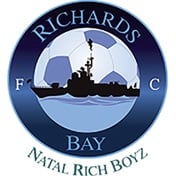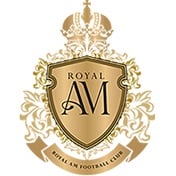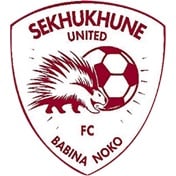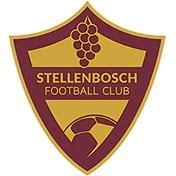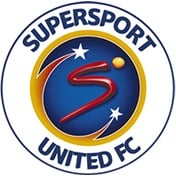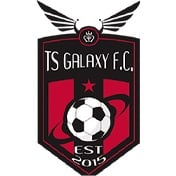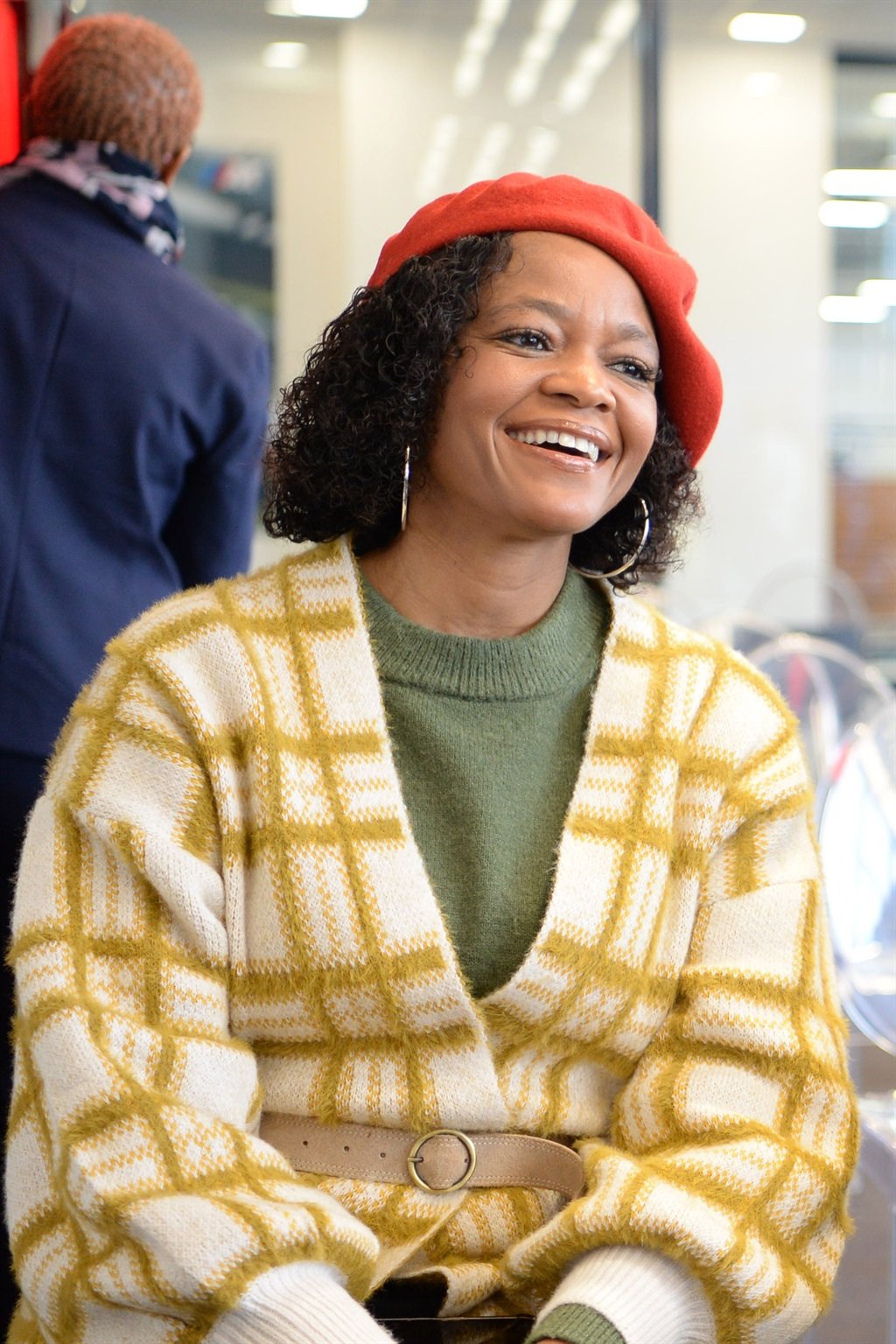
Founder of MT Sports and Marketing, Moira Tlhagale, has opened up on the big plans in store for Pitso Mosimane Soccer Schools (PMSS), discusses being hijacked and reflects on the humongous task of building 10 stadiums.
In the football industry, news often focuses solely on footballers, with agents being seen as a nothing but a vehicle for negotiating transfers. However, every human has their own interesting story to tell, none more so than Moira Tlhagale, who bore one of the heaviest construction burdens during the 2010 FIFA World Cup in ensuring that 10 stadiums were built in time for the tournament.
While leading the technical team of the Local Organising Committee (LOC) in 2005 is one of a long list of accomplishments in her armour, the quantity surveyor-turned-agent also successfully launched multiple projects, including tmtj consulting, tmtj investment holdings and the PMSS.
History has taught us that determined people often never remain in their comfort zone, and that can certainly be associated with the businesswoman who saw an opportunity to venture into the football world when Pitso Mosimane needed someone to negotiate his contract at Bafana Bafana.
While someone's success is a noteworthy topic to pay attention to, the unique and interesting details lie in a human being's roots which helped mould the person they are today.
KickOff sat down with Moira recently to learn more about her incredible story, which includes a R100 000 loan from her grandfather to kick-start her first business, and how her upbringing contributed to the success that we see today. We also delve deep into the football project that is PMSS, and how the future is only looking bright for the organisation.
You have a brother who is a civil engineer, and a sister who is an adversarial scientist. What do you think it is about your upbringing that reared all of you for success?
MT: Yes, it's a good one. I think it's my mom. My mother is quite an intelligent woman, and we were also brought up by our grandparents; my grandfather, for example, was an agriculturist, my grandmother was a nurse and my mother was a teacher, but she changed to work also in corporate at some point.
I think it's just the upbringing of my mother; her approach was never really about telling us what to do. You know, it was more from a discussion point and saying this is what I think, you know, if you want to be where you want to be, this is how you have to approach life. I remember, if you asked her for money because you're going to a function or if you're saying, can I go to a function? She would then say, 'Do you have money to take care of yourself in case, you know, you need to come back?' And it's just that approach. When we were growing up, corporal punishment was just a normal thing. But with us, when we grew up, it was never that from my mother, to be honest.
Speaking about grandparents, when you established tmtj investment holdings, your grandfather gave you a R100 000 loan from his pension savings, which was a lot of money back then. Can you walk us through what was going through your mind? What kind of pressure did you put on yourself at that time?
MT: Yes, so tmtj consulting, it was my initials and my business partner at the time, Thembi Jacobs. So, the TJ is Thembi Jacobs and the TM is Tlhagale Moira.
So what happened when we started as a consulting project management company is that we needed to employ people to be able to deliver on the work. However, to be able to invoice, we needed to employ people and pay those people. So, if you don't have any money like that, it was going to be a challenge, and at the time I went to my grandfather and said, 'Can you borrow me R100 000?', because that was more like a cash-flow type of thing to be able to progress with the project. He gave it to me. It was borrowing at the time and I think four or five months later, I asked him if he could give me his account number so I could give it back to him and he refused to take it back. So, what I've done with that money for my family, and when I say my family, my grandfather had three daughters, my mom being one of them and then we are about, let's see, I think nine grandchildren. So, what I did with that money was just to share it and if anybody wanted a loan of some sort, I would use it as money that helps all of us to start something, but then expect the person to bring the money back.
When you were appointed to be the head of the LOC in 2005, there was a lot of scepticism, with many doubting the choice. How did you navigate through that process at the time?
MT: I don't think there was a doubt in the choice of me being appointed as the leader of the LOC. I think there was generally negativity and a lack of belief in us as South Africans that we were going to be able to deliver on the World Cup. I don't know if you will remember, every time we woke up, they would say that it was going back to Australia or it would go back to Germany, et cetera. As the LOC technical team leader, I think I had really strong credentials from day one, having studied building surveying, which is quantity surveying – that is what it was called in the technikons – and then having also finished my UCT degree in quantity surveying.
Then from there, I worked in a firm, and I worked for quite big reputable, well-known firms at the time as a quantity surveyor. Then I moved to work at Propnet, and then I moved to work at the V&A Waterfront, and then I started this project; I started tmtj. When I did that, I was 33 years old and I don't remember that there was negativity about Moira the person, it was really negativity about the country and also how we were called the Local Organising Committee technical team and it was important as they wanted to ensure that there were all different types of skills to ensure that we are balanced at being able to manage the delivery of the stadiums. So, in my team, it was myself who's a QS numbers person and also a project manager. If you think about it, we needed to understand the cost of the stadiums and then we had two architects, with the key thing being that there was a FIFA compliance stadium. So, the designs of the stadiums needed somebody to oversee, and then we had an electrical and a structural engineer, obviously, as a team. So, I believe our team is very solid with people who have the right credentials.
If I'm answering your question in a long way, I don't think there was ever a question about Moira the person. There was always a question about South Africa, the country being able to deliver. I think what also helped me as a young adult at 33 is that it sometimes helps you because you are quite naive as I did not understand why these people said we wouldn't be able to deliver. I remember one time there was this magazine, I don't remember its name, but they interviewed me at some point, and it was a big story, you know, that came out and then they said to me: "Do you think you will be able to deliver?" I said yes, and I remember Danny [Jordaan] calling me and saying, "Oh, I see you're saying in the papers that we will deliver on time. Are you sure about that?" And I said, "Yeah, I mean it", and honestly, I didn't see any reason why as a country, despite all these negativities that we had with all these European people, we would not deliver. Because South Africa, from an infrastructure development point of view, our construction companies are quite big in delivering big infrastructure projects, not only in South Africa but around the world.
You mentioned a couple of years ago that you were hijacked, which is often a traumatic experience and can change one's worldview. Did your experience impact you in any way?
MT: You know, after the hijack, I don't know if this is how my mind works or having different types of friends that I just got it in my head and understood that it's either this fear is going to control me, or I must control my life. So, what I then did was, I remember, I think I was hijacked on a Tuesday, and Pitso was playing in Mamelodi on Friday because when I got hijacked, they had a match. But then I think, after that they had another match on a Friday or a Saturday in Mamelodi. What I did deliberately was to immediately start driving in the night because I felt it was important that I don't put myself in this prison of fear because I've been hijacked; now every day, I'm scared to drive, I'm scared to do this and then I become a prisoner because of my fear. So I don't think it affected me that much. You know, in anything in life, there are ways, I guess even people when they lose people or something happens, you've got to find a coping mechanism.
I think in my head, my coping mechanism, because the people who hijacked me... it's very ironic what I'm going to say ... they are very decent guys, you know, decent guys that were driving a car that wouldn't say whatever they want. They were not under the influence, they were not aggressive. We are very clear, we are here, we want this car because I guess it's a chain of business as this car was quite common apparently in Mozambique because it was found on its way to Mozambique. So, for me, the bigger picture out of that was, 'What is happening?' There's criminality, but why are there criminals? And why now, having travelled a lot and also more in your golf spaces where you don't find a lot of criminals if I can call them that, or safety is not an issue there. The areas are safe and for me, my head, and I guess that could have been my coping mechanism, that the social economic issues in our country are what is causing what is happening right now. Not that I'm justifying it. So, these people who are hijacking us and, in my thing, I've got to understand that there's a hijack cleaner of the car, then there is a transporter of the car, right? So, the cleaner now changes the document, whatever. So, it's a well-done system and these guys that came to me well-trained, I think they have a way that they go in. There are steps of what happened so, for me, I just thought to myself: "The unemployment rate or the socio-economic issues in our country is what then causes the crime rate to be very high". I guess also I've got a very strong mind, but I think my body was also not working with my mind. At some point, I did have anxiety attacks. If you ask me, are you anxious? I didn't know, but I think psychologists can tell you that. So, I did go through a tough patch of anxiety but not anxiety that I couldn't drive, not anxiety that I'm scared, not anxiety as I'm driving, I'm looking around to see if somebody's coming. I think my mind, on a subconscious level, was now working, working out this thing. So, yeah, I did have to see a doctor to just calm my anxiety levels and just do more. All of us, we've got our own spaces. Some people want to walk to the mountains every day, but for me, it's running. Running just helps me to manage my stress. So, I would say I'm fine, it didn't do much damage to me.
Moving away from the past and a bit more to the future. When it comes to the PMSS, you have mentioned that the project is in Year Two. Can you walk us through Year Three and Four's projections or estimations of where you'd like to be?
MT: Yes, we are in year two, and when I say it's year two, it's not year two, it's year two of the launching of the programme. The programme has more as I put a lot of planning in it during Covid, and this is something that I'll tell you... ever since I've known Pitso, he's been talking about it for many years.
"I want to own an academy that would do this and that', and I think at the time, I was also quite busy during the World Cup with this project. My head was not there and every time there is something negative that is happening, you can always get a positive out of it. So, as a project manager, infrastructure projects have really declined. There's not much happening in that space and because I had a lot of time, I remember one day sitting and thinking, "What am I going to do today?" while also being a bit stressed. Pitso says, "But I am your project. I've been asking you to help me to do this thing", and that's how this thing started. So, you know how it started to be before I tell you where we're going because I think it's all that journey of saying, okay, let me listen to you now, I am more present in what you're saying, instead of just having a conversation and this whole tech line of creating the player of tomorrow, we can come up with it because I've got very great creative marketing brand people. That was his own words that he (Pitso) said to me. "I want to create a player of tomorrow", and I said, "What does that mean?" And he explained that he wants somebody who is balanced socially, somebody who's educated and somebody, importantly, who can compete comfortably in the world.
Because at the moment in South Africa, we are struggling with that. So, what I then did was okay, I heard the brief, then my first thought was to just then understand in the world, the best athletes, how do they get it right? So, I got a researcher to help me research this and I didn't focus only on soccer. I did Barcelona. I did Ajax Amsterdam. But I [also] did the New Zealand rugby team. I did our country's rugby team. I did the Williams sisters. I did Tiger Woods and I did Lewis Hamilton. So, that was the people whose lives I looked at, how did they start? What are they doing? What did they do? How was it done? Et cetera. Out of that whole research, the conclusion was that they all started what they do from a very young age, focusing on technique and putting those 10 000 hours of going back. Now it means to me that I need to start this thing with children, right? Where are the children? They are in school the whole day. What type of schools do we have in our country? We've got the private and the public, and what are the challenges with both? And obviously, it would have been much easier for me to go to quite elite private schools, right? Easy, independent schools. I think you still need to understand we want to work with the government, and we are in discussions with them because soccer is something for an African child and African children predominantly are in the public schools. So, at some point in my research, I tumbled to Curro and did more research about the Curro schools and realised that Curro has four different types of schools. They've got the Curro Select, they've got the Curro Independent, Curro Academy and Curro Meridian, and the Meridian and the academy are all in the townships.
I thought, this covers that African child who is a soccer-loving person that we can do with a private institution that it will be easier for us to start the project. For us, it was also about starting and that's how I started having discussions with Curro. It was quite an interesting meeting. I asked for a meeting with their then-CEO in Cape Town and came to Cape Town. No presentation, no nothing, and my selling point was that rugby is rugby in South Africa because there are schools that are known to produce rugby players. Soccer, in the meantime, we've got the School of Excellence and who else? And how about then combining the Curro schools, which are known to be the school that produces players, in public with coach Pitso?
Yes, they loved it and they said, "Okay, let's just try this." Last year, they gave us two schools to try first. PMSS is all about what I told you, about the research, mastering the ball, and making sure that you train as long and as much as possible.
But with the schools, we do mass participation and we do only teams, it's very limited. So, last year we just felt, to also augment in ensuring that we stay true to our vision and the objective of our programme, we then opened three independent schools in Midrand, Boksburg and North Riding and we opened this around June. Curro is at the beginning of the year, these ones we opened in June, and we had about 120 last year, but because we're already late, you must remember by that time children have already signed up with clubs. But we're quite happy with that number as a start.
Then, the end of last year, Curro, without us knowing, did research with the parents, with the children and with the teachers to just see whether this thing is working. Whether they must continue with us. They got such an overwhelming response about how good the programme was to them and then they gave us 10 more schools for this year.
This is Year Two and we continued with those three and then coach Pitso kept on saying, "I need this programme to be in the townships." So I thought, okay, for us to be in the township, if you think about it, it's not as easy as we find a school with the right facility in the township. What we then had to do is to look at facilities that are owned by the municipality so that we can then use those as our thing.
For now, we were likely to get to Mamelodi, we still want to go to Tembisa, Alexandra, Soweto, go wherever. But then now we've got the North Riding, Midrand, Boksburg and the Mamelodi Centre. So, this is now this feeling what we've also done with this project, which I've just got to understand, you know if you look at different models of successful businesses is that it's always important to own the value chain.
So, I've had brands coming and say, "Let's partner, let the kids wear our brand", and I thought, firstly, some brands with my kids that I'm planning to work with, they can't afford that. A brand can give you, let's say. a budget of so much money, but after that, the kids must go and buy that. So, we then decided to also establish what is called Pitso Mosimane, PM activewear, and this is where we now manufacture our own sportswear. The children that play for us wear Pitso's brand PM activewear. So, we also started on that project, which has been going quite well.
So, when a child registered, they get the whole package, including the kit. We give two tracksuits. We will even one day get to balls, just owning the chain.
This year has been very tough because, last year, we were doing PMSS and this year we decided to do the soccer school, but also register clubs because it's good for kids to learn or master the ball technique training, but they need to practise it somewhere else.
We've now opened the clubs, I think, in certain locations of the four locations, we might have two clubs per age group. But you're trying to, in certain situations, [and] the LFA doesn't agree. They just want one club per team. We've had an overwhelming response from a lot of kids. I mean, in Mamelodi on one Saturday, we had almost 1 000 kids coming from age U7 to U15. But we managed it properly in terms of timing and how we controlled them. For me, next year, I need to stabilise this big thing. I was telling my team that I don't want us to move next year to open more. I mean, people are calling us from Botswana, from Nigeria, from Egypt, from Saudi, from UAE: Please come and open this thing. I am scared to open this thing too fast, too quick. So, what we've done this year, next year, I want to cement it and just make sure that the whole thing is working perfectly and the model is working before we grow.
We would want to go to other provinces. For now, we only have one in North West and in Polokwane, and most of them are in Joburg. I'm talking about the Curro now, the soccer school, and the clubs are only in Gauteng.
Am I going to come to Cape Town? We can, but that child we started with last year who was seven is now eight. And I'm thinking that these children, if we can put them in an academic institution, a boarding school from the age of 10, we start working with them every time, it will work to the benefit of what we want to do. So, it is to cement the whole academy. I know people use the word 'academy' very loosely. Somebody's got a club. No, it's an academy. We are not an academy, we are a football club and we are a soccer school. An academy is something that has got a link to an academic institution and the kids are academic to train there, they sleep there, they do everything there. So, we would like to have an academy and we've had a few discussions with different people, and I think that would be, for me, the next most important thing, a big project for next year and the next two years to demand and start that.
You must be SIGNED IN to read and post comments.
Click here to register!
WATCH:











